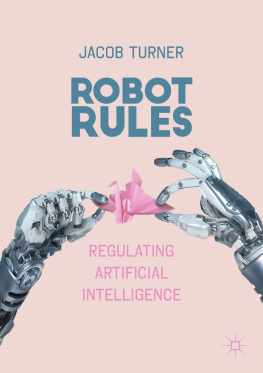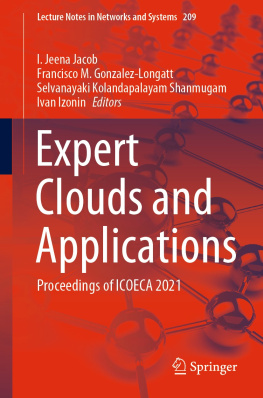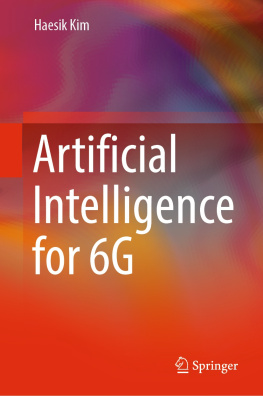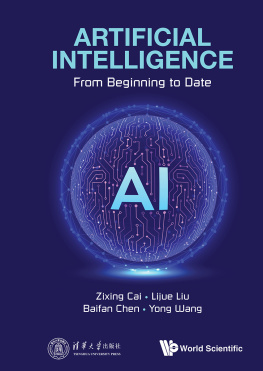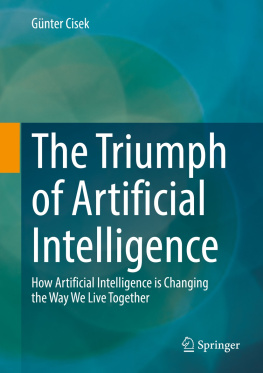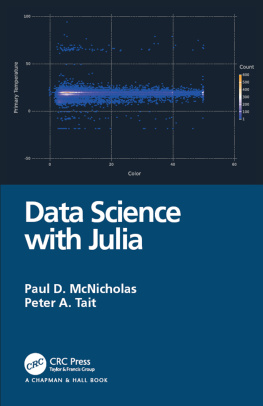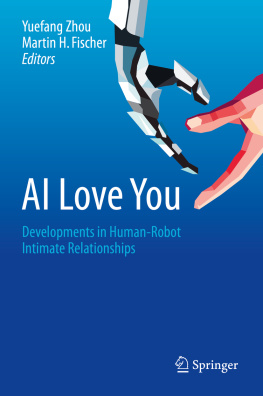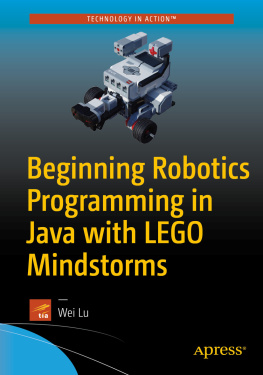Jacob Turner - Robot Rules: Regulating Artificial Intelligence
Here you can read online Jacob Turner - Robot Rules: Regulating Artificial Intelligence full text of the book (entire story) in english for free. Download pdf and epub, get meaning, cover and reviews about this ebook. year: 2018, publisher: Palgrave Macmillan, genre: Art. Description of the work, (preface) as well as reviews are available. Best literature library LitArk.com created for fans of good reading and offers a wide selection of genres:
Romance novel
Science fiction
Adventure
Detective
Science
History
Home and family
Prose
Art
Politics
Computer
Non-fiction
Religion
Business
Children
Humor
Choose a favorite category and find really read worthwhile books. Enjoy immersion in the world of imagination, feel the emotions of the characters or learn something new for yourself, make an fascinating discovery.
- Book:Robot Rules: Regulating Artificial Intelligence
- Author:
- Publisher:Palgrave Macmillan
- Genre:
- Year:2018
- Rating:4 / 5
- Favourites:Add to favourites
- Your mark:
- 80
- 1
- 2
- 3
- 4
- 5
Robot Rules: Regulating Artificial Intelligence: summary, description and annotation
We offer to read an annotation, description, summary or preface (depends on what the author of the book "Robot Rules: Regulating Artificial Intelligence" wrote himself). If you haven't found the necessary information about the book — write in the comments, we will try to find it.
Robot Rules: Regulating Artificial Intelligence — read online for free the complete book (whole text) full work
Below is the text of the book, divided by pages. System saving the place of the last page read, allows you to conveniently read the book "Robot Rules: Regulating Artificial Intelligence" online for free, without having to search again every time where you left off. Put a bookmark, and you can go to the page where you finished reading at any time.
Font size:
Interval:
Bookmark:
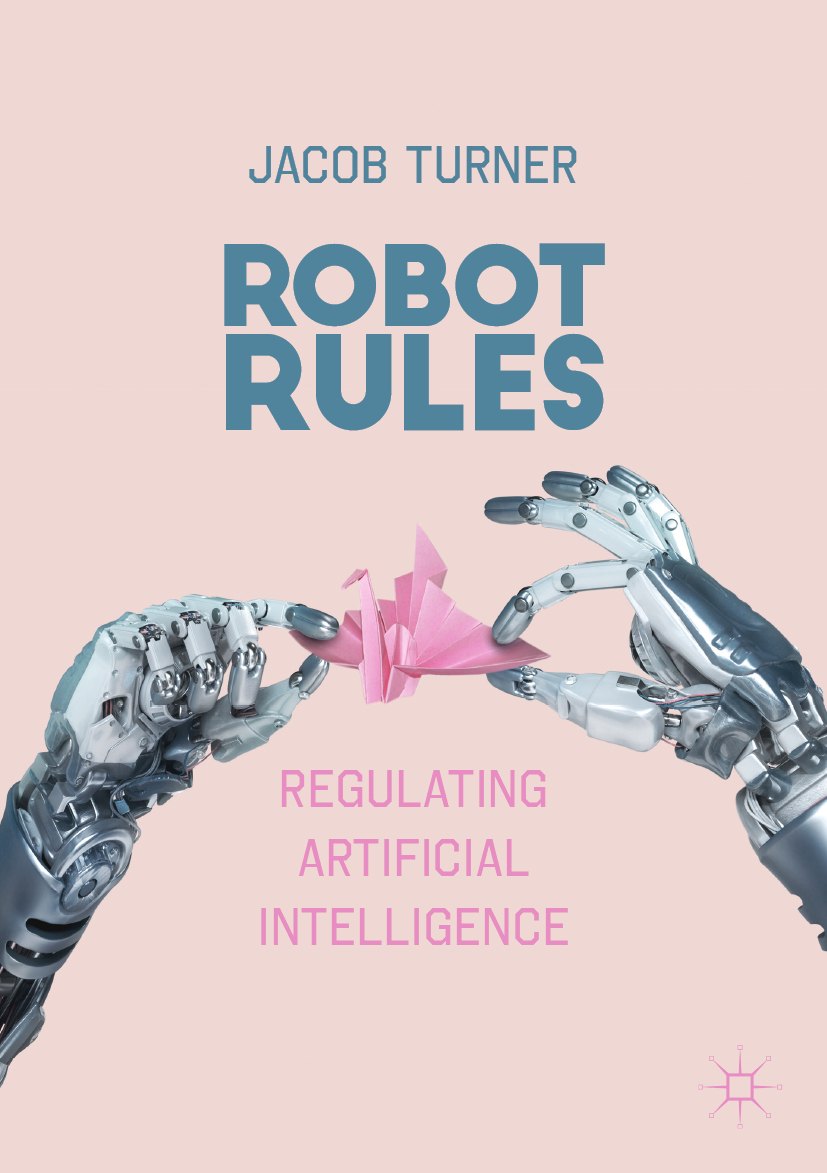

Cover image: Paper Boat Creative
This Palgrave Macmillan imprint is published by the registered company Springer Nature Switzerland AG
The registered company address is: Gewerbestrasse 11, 6330 Cham, Switzerland
To Joanne, Caroline and Jonathan
This is a very timely, thought-provoking and significant book.
These days, even half-serious newspapers contain at least one article every week, sometimes an article almost every day, on some aspect of the imminent and fundamental changes which are (mostly justifiably) said to be about to be wrought to our private, social and working lives by artificial intelligence, or robots. As with many prospective developments, both the precise nature and extent of the changes which AI will cause and the timing of any changes are to a significant extent a matter of conjecture, and so, there is room for a range of respectable predictions. More troublingly, the more extreme, imminent and confident (almost, one can say, the more unrespectable) any prediction about the future, the greater the prominence of the coverage it receives in the popular media. However, there is force in the point that virtually any discussion of the likely effect of a significant prospective development is to be welcomed, as it plays an essential part in the vital exercise of encouraging us to think about and prepare for that development when it comes to pass. Because the potential changes resulting from artificial intelligence will almost certainly be more revolutionary and more widespread than any development since homo sapiens evolved, these factors are all particularly in point when it comes to AI.
Having said that, in a somewhat paradoxical way, the current sensationalist coverage of the likely effects of artificial intelligence seems almost more to mask, rather than to get people ready for, the extraordinary changes which will result from AI. I think that this is due partly to a sort of novelty inoculation or exhaustionin other words, the popular media crying wolf too often, too thoughtlessly and too loudly. But an at least equally important factor is, I believe, that the potential effects of AI are so far-reaching in relation to all aspects of our physical, mental, social and moral lives that most people find these changes too challenging to think about in any constructive or practical way. And yet it is both very important and very urgent that we prepare ourselves, both mentally as individuals and structurally as a society, for the AI revolution.
Amidst all the sensationalist, generalised noise, there are a number of much more considered and expert treatments of artificial intelligence, in the form of books and reports. Because the effect of AI is almost certain to be so very far-reaching, there is a need in particular for a considered and informed study of the legal, ethical, and regulatory implications of AI, bearing in mind the many individual areas which are liable to be seriously disrupted, challenged, marginalised or revolutionised as it is rolled out. As Jacob Turner says in this book, the world needs to be as well prepared as it can be for what has been, sensationally if not inaccurately, described as the unstoppable march of the robotsand the sooner we start seriously preparing the better.
A thoughtful and informed book which analyses the implications of current and future developments in AI and how we should plan to deal with them is therefore to be unreservedly welcomed. To write such a book requires a combination of many abilitiesincluding a proper appreciation of the capabilities, functioning, and limits of computer science and technology, a combination of common sense and imagination, an understanding of society, human nature, and economics, and a real appreciation of morality, law and ethics. Not many people have this combination of talents, but any reader of Robot Rules: Regulating Artificial Intelligence will, I think, agree that Jacob Turner has demonstrated that he has.
The earlier chapters in this book set the scene and then discuss a number of important and challenging issues of principle and practice which will be thrown up by AI. These chapters include some facts about AI which are not only little known and interesting, but help to explain where we have got to so far. For instance, AI has been with us for well over half a century, in ways which Jacob Turner describes, and this means that we have experience as well as imagination to guide us to the future. He also explains that AI involves different concepts; indeed, its very definition is a matter of contention, and he provides his own, to my mind rather satisfying, definition.
In addition, when discussing concepts, Jacob Turner brings what could be a dry topic to life by briefly, but illuminatingly, tracing their history and by raising very profound questions. Thus, when considering the question whether robots should have rights, he traces the development of animal rights. And his discussion of the debate as to whether robots can be said to have feelings raises deep metaphysical and moral questions as to the nature of consciousness and compassion, not to mention sex, and even the existence of the human soul. And in the chapter discussing whether robots should have a legal personality, a number of vivid examples are given, including robots in the boardroom and the Random Darknet Shopper.
In two chapters of particular fascination for lawyers, but also for interested non-lawyers, Jacob Turner explains why AI is already starting to require changes to some fundamental legal concepts, such as agency and causation, and he considers how certain principles of liability could be adjusted to incorporate AIin criminal law, and in negligence, product liability, vicarious liability, contract, insurance and IP in civil law.
Font size:
Interval:
Bookmark:
Similar books «Robot Rules: Regulating Artificial Intelligence»
Look at similar books to Robot Rules: Regulating Artificial Intelligence. We have selected literature similar in name and meaning in the hope of providing readers with more options to find new, interesting, not yet read works.
Discussion, reviews of the book Robot Rules: Regulating Artificial Intelligence and just readers' own opinions. Leave your comments, write what you think about the work, its meaning or the main characters. Specify what exactly you liked and what you didn't like, and why you think so.

